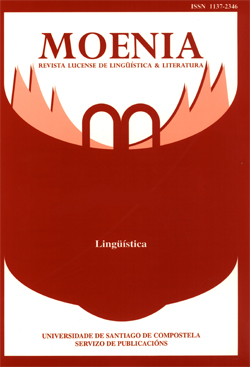Vol 23 (2017), Articles
Submitted: 15-05-2017
Accepted: 06-10-2017
Published: 05-07-2018
The discussion on the nature of linguistics and the problem of the delimitation of its object of study has taken place in different ways since the very existence of the reflection on language. During the 19th century, a debate has emerged about the position that linguistics studies should undertake in relation to other sciences and fields of knowledge. We have noted that, in such a frame of constant epistemological revision, every argumentative maneuver became a central element on which the different authors capitalized. The representation of the past of linguistics became, thus, an argumentative operation at the service of synchronic theory. Here, we analyze a series composed of four works, selected according to a chronological and thematic criterion (Swiggers 2009): Grimm (1851), Müller (1854), Schleicher (1863) and Paul (1880); these authors, in order to attain an epistemological position in the science of linguistics, offered ?in a more or less overlapping manner? a representation of the history of this discipline. We aim to make an analysis (from an immanent perspective) based on two theoretical categories, namely historiographical device (Battista 2013) and narrative sentences (Danto 1965); these categories allow us to work with the theoretical-methodological turn, which consists of the conversion of the primary object of study into a secondary object of study, in other words, the conversion of history into historiography (Zamorano Aguilar 2012).
history, linguistics, epistemology, 19th century


